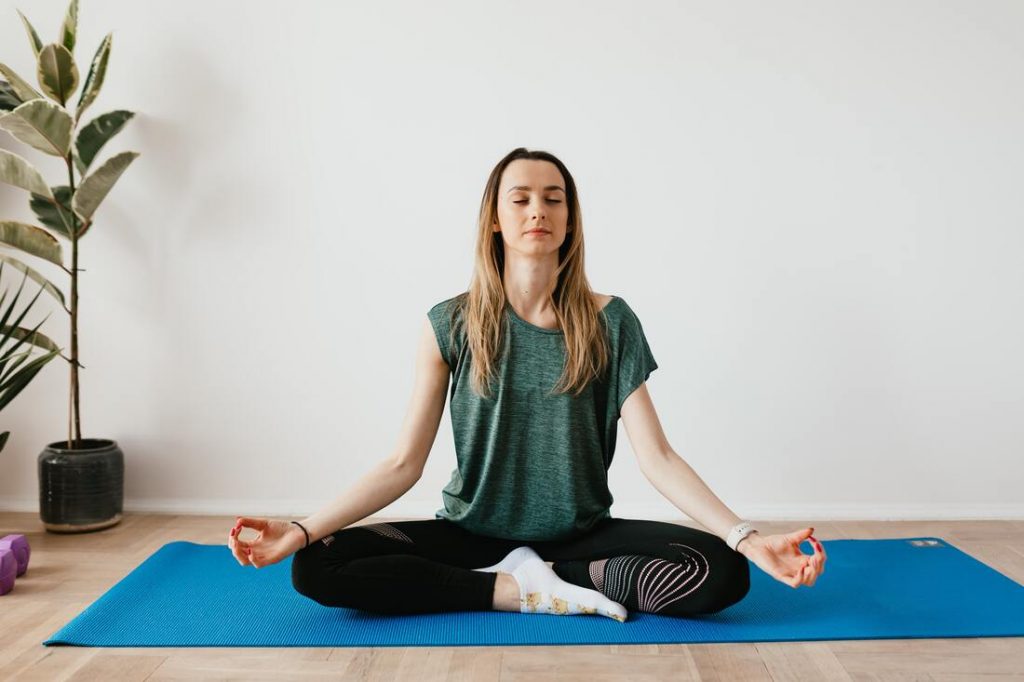This website uses cookies so that we can provide you with the best user experience possible. Cookie information is stored in your browser and performs functions such as recognising you when you return to our website and helping our team to understand which sections of the website you find most interesting and useful.
What do we really mean when we say we are suffering with anxiety? Is it that you have recently experienced an event that has made you feel incredibly anxious, or are you dealing with a major change in your life, such as a divorce, or a move to a new job or country?
Maybe anxiety is something you have had in the background for many years, a feeling that rears up from time to time and leaves you feeling exhausted, overwhelmed and jumpy? Or is it something new – an unpleasant feeling that happens when you are facing an important event – a board meeting, giving a speech or presentation, getting onto a flight?

You probably know well what it feels like. You may notice headaches, lumps in the throat, pounding heart, shaking and trembling, tenseness or breathlessness – these are just some of the common symptoms that come with anxiety. Anxiety can also interfere with your sleeping, eating and how you interact with others.
Anxiety is normal and natural – its part of our evolutionary heritage. But when it starts to get in the way of what you want to do in life (that is, it’s at a high level and is stuck there), then it’s time to learn about what’s really happening inside your brain.
Let’s look at anxiety and see if some of these things are happening for you.
Look in your body for:
- Breathing is hard
- Heart rate is high
- Feeling faint or dizzy
- Sweating
- Dry mouth
- Shaky or trembly
- Upset tummy
- Lumps in your throat
- Felling restless and unsettled
- Being irritable and tired
- Having a tense, rigid body
Look inside your head for thoughts that are:
- Thinking that goes around and around
- Thinking that over-analyses what you and others say and do
- Thinking that is often in the past and the future (but not the present)
- Thinking too that is critical and negative and makes you feel unhappy
- Thinking that has rules, regulations and things you can or cannot do
Look in your body for feelings of:
- Anger
- Sadness
- Frustration
- Panic
- Anxiety
Look for the behaviours you do. Look for:
- Repetitive behaviours: such as too much drinking, over working, tapping feet, and biting fingernails.
- Lifestyle changes: such as staying home, avoiding people, places and situations, avoiding social situations and social events, not going to supermarkets, malls or getting on planes.
- Distraction behaviours: such as playing repeatedly on phones or computers, not listening to people, multi-tasking, overeating or shopping too much
- Procrastinating
- Self-sabotaging: doing things poorly and missing deadlines
- Finding it hard to commit to some-one or something or to make decisions (overanalyzing)
Anxiety can affect relationships too. Anxiety can make it hard to trust people, or we may become so demanding and inflexible that relationships are strained. When we’re anxious we sometimes set impossibly high targets, expect too much of others and ourselves and maybe do too little. These behaviours can lead to a vicious circle of failure.

Why is anxiety worse for some?
At some level, anxiety is a functional and useful response. When there is real danger, such as you might face from traffic or drowning you will need real fear to give you an energy surge to keep safe. If you have some anxiety you are also likely to manage challenges such as interviews, public speaking and exams better than if you had none. Moderate levels of anxiety can spur people on to achieve well.
But when anxiety becomes too high and affects your daily life (e.g., you are overthinking, worrying too much or hiding away) it’s important to do something about it. It’s easy to get into automatic patterns of thinking, feeling and behaviour that unexpectedly will make the anxiety worse. That’s when therapy comes into the picture – in therapy we build an awareness of thinking, feelings and responses, so that you can choose what you will do next.
Why are we anxious?
Think of your brain as processing information in two ways:
- Information goes to your reptilian brain that reacts instinctively rather than through conscious thinking. It is from this reactive brain that we experience the survival-based behaviour patterns associated with anxiety: fight (fight back), flight (run away), or freeze (play dead).
- Information goes to your prefrontal cortex (the thinking brain) where you use conscious reasoning that is reflective, focused and open to new information. You are aware of this thinking and use it wisely to help make important decisions.
When you feel overwhelmed (not calm) your reptilian brain will take over – and you will be reactive and less in control. Then you will feel anxious.
Your reptilian brain
The reptilian brain is a negatively biased brain. That’s because its job is to scan the environment unendingly for threats, possible problems, enemies and upcoming disasters. Your reptilian brain has very little or zero interest in positive information – since pretty yellow daffodils or calming sunsets are not helpful in keeping you alive. Your brain is constantly on the alert for any problems and will easily pick up on triggers, cues or indications that there’s something wrong.
Your reptilian brain is also super sensitive to people and relationships. We’re tribal and social people and reptilian brains are very concerned about being accepted into our groups and families and are very aware of our differences when we’re around others. This sensitivity to relationships is partly an evolutionary response since many hundreds of thousands of years ago, those of us who were not accepted or loved were often killed or died because we were excommunicated.
When the reptilian brain is alerted to danger, it responds in survival mode – either Fighting, Flighting or Fleeing (link to post).
When the reptilian brain is not in survival mode, it feels safe. You’ll find that you’re doing things such as are playing, nurturing, mating, working or being creative.
How to calm the reptilian brain

When you are in fight/flight you’ll notice the tenseness in your shoulders, head and chest and maybe feel the breathlessness that sometimes has you gasping for air. You’ll likely feel edgy, jumpy and react negatively to people talking to you.
The most powerful thing you can do when you feel anxious is to Breathe (mindfully and consciously).
While this might seem simple and possibly even ineffective, there is plenty of research to show us that this is an effective, long-term convenient way to manage fearful brains. Think of it like this. If you have a scared and afraid reptilian brain, wouldn’t the most effective thing you could do, involve you calming it down in some way? That is, you not becoming angry or frustrated (that you’re feeling anxiety), but instead calmly and sensitively allowing your breath to calm your mind?
If you can use your breathing to calm your reptilian brain, you may notice that your breathing is communicating a message to your reptilian brain that sounds like this: “It’s all okay”. Since your reptilian brain is attuned to your body and closely monitors it at all times, it is likely to take this message on board. And with practice, yes, it will eventually learn to calm down.
Here is a short breathing practice you can do right now.
We will take five slow, deep breaths.
- First, sit comfortably and close your eyes or let your gaze rest gently upon something in front of you
- Begin by exhaling all the air in your lungs so you are completely empty.
- Then breathe in through your nose – evenly, filling your lungs from bottom to top in equal, even amounts. Count 1, 2, 3 and 4.
- Then, we will breathe out as slowly as possible until the lungs are completely empty – pushing every last bit of air out of them.
Practice this breathing exercise throughout the day, especially any time you find yourself getting caught up in your thoughts and feelings.
You can also practice whenever you are waiting, such as when you are stopped at a stoplight, are on hold on the phone, are waiting in line at the store, are watching commercial during a TV show, are waiting for a friend to arrive or waiting for a meeting to start.
Want to know about anxiety?
Check out these blog posts we have on anxiety:



